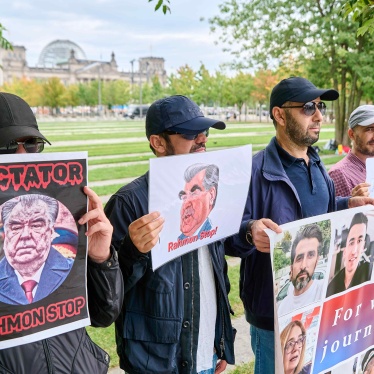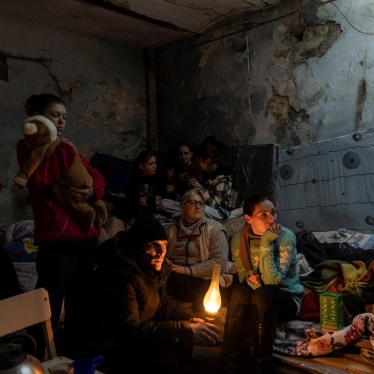(Moscow) – Leaders of G20 countries should take concrete action to show support for human rights and civil society during the G20 summit in St. Petersburg. They should meet nongovernmental organizations, for example.
Russia set its priorities for its 2013 G20 presidency as growth through jobs and investment, growth through transparency and trust, and growth through effective regulation. It is hosting the leaders’ summit on September 5-6 in St Petersburg.
“A strong, open society is essential for transparency,” said Tanya Lokshina, Russia program director at Human Rights Watch. “Russia’s leadership needs to hear from its G20 partners that its crackdown does not serve but instead contradicts the interests of an open society.”
In letters to leaders of select G20 states, including Argentina, Australia, and Brazil, Human Rights Watch urged that they speak out against the crackdown on human rights over the past 16 months. Human Rights Watch asked them to meet with Russian nongovernmental organizations to hear first-hand about the impact of the crackdown on their work.
The Russian Parliament has adopted laws imposing new restrictions on public assemblies, criminalizing libel, and tightening Internet regulation. It has also adopted laws aimed at curtailing alleged “foreign” influence in Russia by adopting a new legal definition of treason and adopting a law that requires groups that accept foreign funding and engage in broadly defined “political activities,” to register as “foreign agents.” This is understood in Russia as “spy” or traitor.” A nationwide government inspection campaign of nongovernmental organizations to identify “foreign agent” organizations appeared designed to intimidate and marginalize civil society groups.
“The past 16 months have seen the worst crackdown on human rights in Russia’s post-Soviet history,” Lokshina said. “The suppression of independent groups aims to hurt civil society, which should instead be respected and supported.”
The government has also adopted a law banning the dissemination among children of information promoting “nontraditional sexual relationships” and providing a “distorted notion of social equivalence of traditional and nontraditional sexual relationships.” In Russia, “nontraditional sexual relationships” is broadly understood as lesbian, gay, bi-sexual, or transgender (LGBT) relations.
“This means that any positive information or communication about LGBT rightsis forbidden,” said Lokshina. “This is discriminatory and harmful, and G20 leaders should speak out unequivocally against it.”







